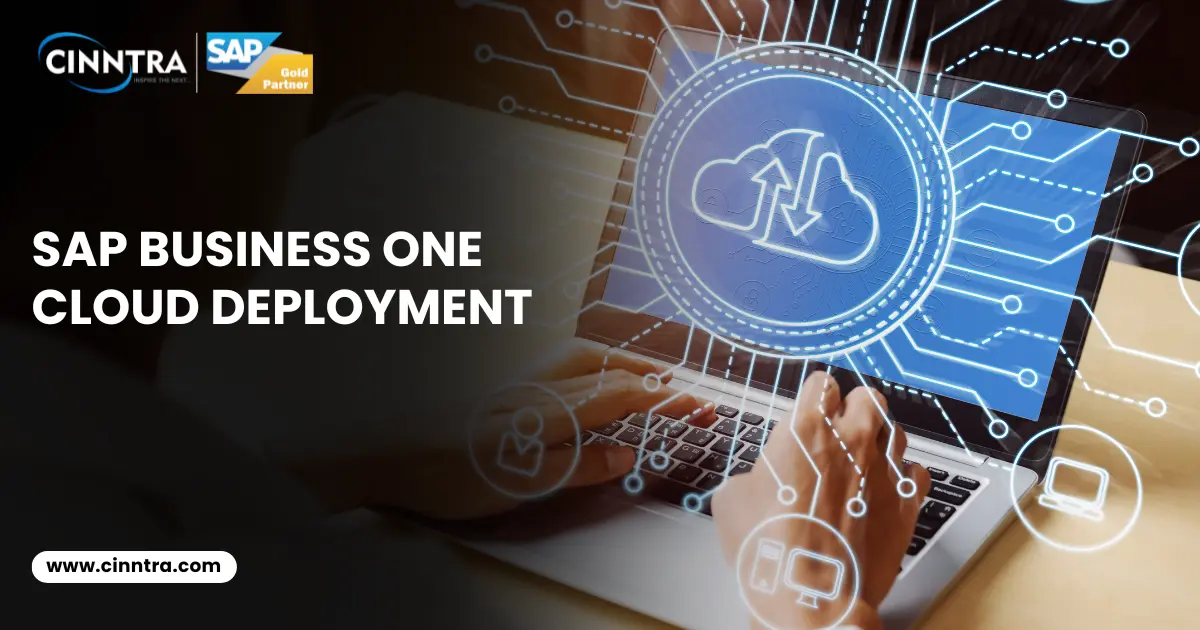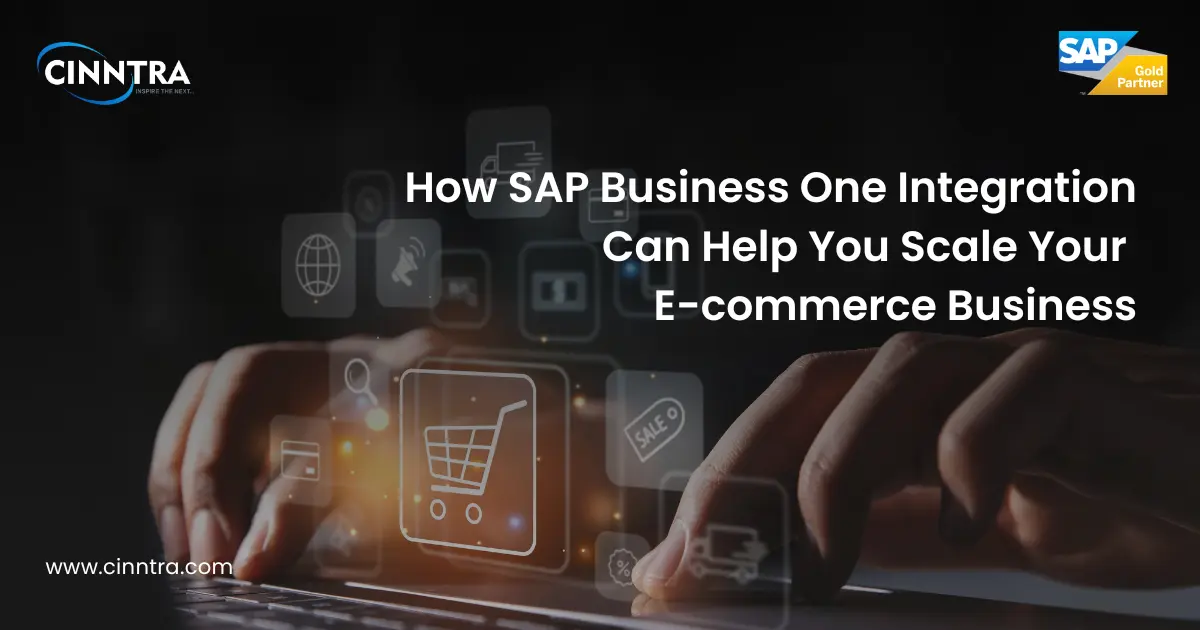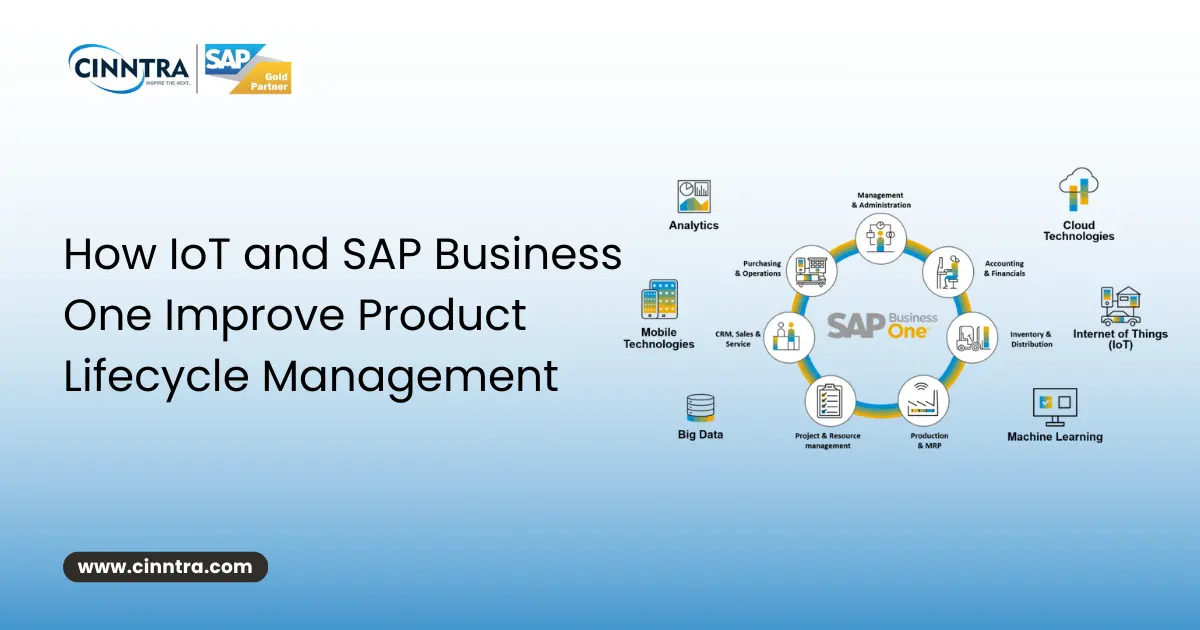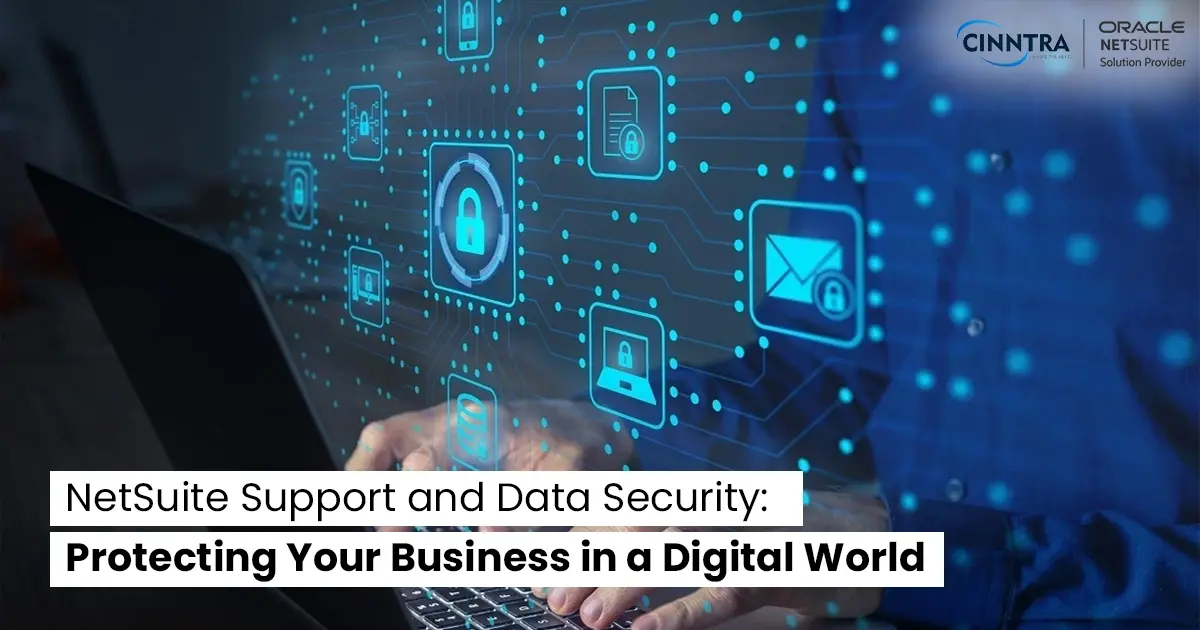SAP Business One Cloud Deployment: Architecture, Security, and Best Practices

Scalability, security, and Cost optimization —these are the pillars of a future-ready business. SAP Business One Cloud transforms business processes, enhancing workflow efficiency and enabling better business decision-making. The appropriate approach will improve performance, bolster data security, economize on IT spending, and support growth. On the flip side, bad deployment results in security issues, operational constraints, and uncontrolled expenses. With the right cloud framework, all long-term objectives can be accomplished in the constantly evolving digital economy with SAP Business One Cloud Deployment.
This blog will give you insights into all aspects of SAP Business One Cloud Deployment, concerning its architecture, precautions about safety, hosting, as well as policies and procedures that govern a secure cloud migration in deployment best practices.
What is SAP Business One Cloud?
SAP B1 Cloud is the hosted combination of SAP’s powerful ERP software for SMEs where the entire application is managed on the Cloud. It serves as an all-inclusive solution to execute and manage business processes such as finance, sales, supply chain, inventory, and customer relationship management without a heavy on-premises infrastructure.
Why Cloud Deployment is the Future for SAP Business One ERP?
Let's explore a few points to properly comprehend why businesses believe that cloud deployment is the future of ERP solutions:
-
Reduced Initial Capital Costs- Without upfront investment costs, eliminate both your hardware and IT expenses.
-
Greater Flexibility and Scalability – Add or remove resources according to business needs at any particular moment.
-
Access remotely- Obtain critical business information from all locations and devices throughout the world.
-
Effortless Upgrades and Maintenance – Automatic updates guarantee the uninterrupted operation of the organization regardless of the features and security updates made.
-
Business Continuity & Disaster Recovery – Redundancies and data protection copies make systems fail-proof and capable of withstanding numerous challenges.
Considerations For Choosing Appropriate SAP Business One Cloud Deployment Models
SAP Business One Cloud is built with an advanced architecture to support optimal performance, security, and availability. Different deployment models are offered to satisfy business requirements, making it possible for companies to pick from various options.
1. Public Cloud Deployment (Multi-Tenant Model)
This model is managed in full by the service provider and it is relatively inexpensive. This works best for businesses that need minimal IT intervention and are looking for effortless multi-tenant ERP cloud solutions. The model is facilitated by leading cloud providers of AWS, Microsoft Azure, and Google Cloud.
2. Private Cloud Deployment (Single-Tenant Model)
A private or dedicated cloud is specially designed for a respective single organization. This works best for businesses that demand a lot more configuration, higher security, and rule-based structure compliance.
3. Hybrid Cloud Deployment (Best of Both Worlds)
On-premises tools and resources are interlaced and integrated with cloud services. This enables businesses to scale up or down on demand while maintaining control and security.
Core Components of SAP Business One Cloud Architecture
SAP B1 Cloud is made up of three essential layers that provide seamless company operations:
-
Database Layer: To enable blazing-fast data processing or high-speed analytics, SAP HANA and Microsoft SQL Server are utilized.
-
Application Layer: SAP Business One’s core, the layer that consumes business rules alongside reporting and business process automation.
-
User Interface Layer: Accessed through web, desktop, or mobile application. Provides a seamless experience across devices.
SAP Business One Hosting Solutions
Selecting the appropriate hosting solution is essential to ensuring data
security and optimum system performance:
-
SAP Hosted Cloud – Hosted and managed by SAP and operated through global data centers.
-
Partner-Hosted Cloud – Provided by certified SAP third parties as hosting with specific requirements.
-
Self-Managed Cloud – The company's infrastructure encompasses a Cloud environment where it installs Business One ERP on its own.
Security And Compliance in SAP Business One Cloud: Data Protection Measures
Cloud security is one of the main concerns for companies adopting an ERP system. This encompasses advanced security features at the enterprise level for data security against external hostile systems and compliance with regulations.
1. Protection of Data and Regulatory Framework Compliance
-
Confidential Data Encryption – End-to-end AES-256 encryption ensures data security while inactive and active.
-
Compliance Regulations – General adherence to GDPR, HIPAA, SOC 2, and ISO 27001 security frameworks.
-
Firewall Protection – Prevention of unauthorized access to data and malicious activities against cyber-attacks.
2. Secure User Authentication and Access Management
-
Role-Based Access Control: System access is controlled based on a user’s specific tasks and responsibilities.
-
Multi-Factor Authentication: The modification of logging methods to reduce the chances of unauthorized entry to the system.
-
Single Sign-On: Users can authenticate themselves on many business applications without having to re-enter their credentials.
3. Recovery from Disaster and Strategies for Continuing Business Operations
-
Daily Automated Backup- This secures crucial data through real-time redundancy.
-
Infrastructure Geo Redundancy- This guarantees the restoration of service during a catastrophe and ensures high availability.
-
Threat Intelligence with AI- These systems prevent and respond to cyber threats before they mature during pre-attack phases.
Best Practices for SAP Business One Cloud Deployment: Maximizing Performance & ROI
To maximize performance and security when using SAP B1
cloud, enterprises should use the following recommended practices.
1. Allocate Resources Wisely Recommendations
-
Before selecting a model of deployment, make sure to measure compliance, IT resource accessibility, and business objectives.
-
For effective deployment of SAP Business One, certify cloud vendors from SAP for proper hosting.
2. Tips to Enhance Performance
-
Balancing Load and Autoscaling: Increase efficiency of speed and reliability by distributing workloads.
-
Optimization of Database: Enhance queries and analytics through real-time completions with SAP HANA in-memory computing.
-
Optimization of the Network: Improve accessibility at a global scale with Content Delivery Networks CNDs.
3. Increasing Protection
-
Reduce vulnerabilities through quarterly security audits and penetration testing.
-
Identify risks through examination of user behavior and system activity logs.
-
Make use of security AI systems to fight against evolving cyber threats.
4. Easy Integration with Other Systems Online
-
CRM Integration: Connect the SAP B1 ERP to Salesforce, HubSpot, or Zoho CRM and synchronize data.
-
eCommerce Integration: Integrate with Shopify, Magento, and WooCommerce for automated order fulfillment.
-
AI & ML Integration: Apply predictive analytics and business decision automation for better outcomes.
Why is SAP Business One Cloud the Perfect Choice for Transforming SMEs Digitally?
With SAP B1 Cloud, businesses can scale efficiently amidst a digital era while enjoying the safety and security of a low-cost ERP environment. Whether businesses choose to deploy their cloud infrastructure in public, private, or hybrid clouds, security, performance, and compliance must always be at the forefront of any decision made for sustained success.
Businesses can improve their operational efficiency, workflow productivity, and data safety by utilizing SAP B1 hosting providers in today's dynamic business environment.
Are you prepared to move your Business One ERP system to the cloud? Speak to our ERP specialists now for a tailored strategy to deploy your cloud infrastructure!



0 Comments